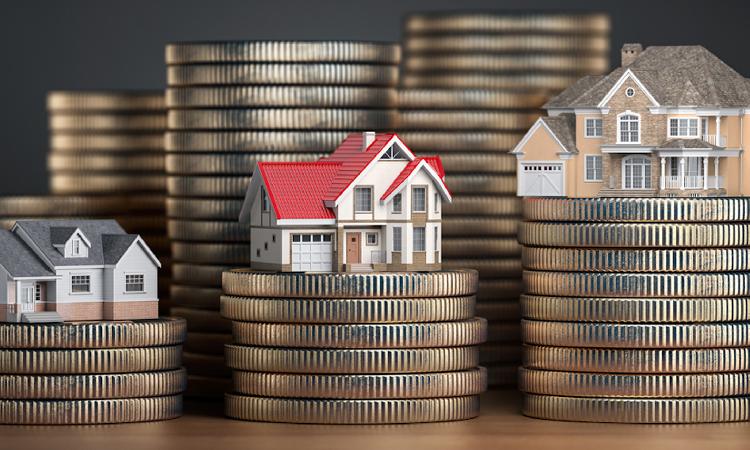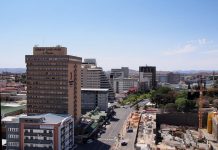Africa-Press – Namibia. BACKING JSE-listed companies that own properties such as shopping malls, offices, warehouses and housing has largely been considered a safe and reliable investment.
BACKING JSE-listed companies that own properties such as shopping malls, offices, warehouses and housing has largely been considered a safe and reliable investment.
And if the economy is in a good place, companies generate a lot of rental income.
Companies would use the rental income to pay costs associated with the upkeep of a property and also pay a portion of that income to reward investors in the form of dividend payouts.
For many years, the dividend payout was well above consumer inflation, making property investments inflation-proof and lucrative.
But those days are long gone, says Norbert Sasse, the group chief executive of Growthpoint Properties, one of the largest real estate companies in South Africa.
Sasse points to the dividend payout ratios that property companies used to pay.
The ratio, expressed as a percentage, measures how much of the after-tax earnings of the property company would be paid as dividends to shareholders.
Before the pandemic burrowed its way into South Africa in early 2020, dividend payout ratios of more than 100% – declared by property companies – were the norm and further cemented the investment case of property as an asset class.
Sasse says it would be wishful thinking to expect such dividend payout ratios because the new norm is now payout ratios of below 100%.
When Growthpoint published its financial results last week, covering the year ending 30 June 2022, the company’s dividend payout ratio to shareholders reached 82,5%.
Growthpoint has property assets worth more than N$100 billion, including part ownership of the V&A Waterfront in Cape Town (along with the Public Investment Corporation) and a host of others.
At a results presentation on 15 September, Sasse told institutional investors that Growthpoint won’t go up to 100% dividend payout ratio for a long time because declaring such a ratio is not “a sustainable business model”.
He told investors that Growthpoint will be at the 80% level in terms of the ratio for a while.
“We certainly ain’t going to 100%.”
Arguably, if one of the largest property companies in South Africa has adopted this position, it will likely be mirrored by the other 50-odd property companies listed on the JSE.
Property companies on the JSE are still recovering from a pandemic that shocked their balance sheets. The companies were forced to offer their tenants rental relief measures, dividends were slashed or suspended, share prices of property companies slumped to 15-year lows, with billions of rands wiped from their value on the JSE.
Although the government has substantially eased lockdown regulations (there are no longer any restrictions), the property sector is still in a tough space.
Growthpoint’s results show that the retail industry has staged a comeback from the Covid-19 slump, with more consumers visiting shopping malls.
Most consumers are sick and tired of being housebound, with Growthpoint’s shopping malls seeing the benefit of increased traffic.
Meanwhile, the office property market is a pressure point for Growthpoint. It is facing pressure in nodes such as Sandton in Johannesburg because some workers at properties it leases have not returned to the office, opting instead to continue working from home on most days. And at a high level, there is an oversupply of office space in Sandton.
However, Sasse says the electricity crisis will force more workers back to the office, those that are equipped with generators, anyway.
Property companies are paying lower dividend ratios to shareholders because they also have to maintain and upgrade the properties that tenants occupy. And if property companies are to meet dividend payout ratios of more than 100%, they will have to borrow more to meet such standards, which is a bad thing.
– Business Maverick
And if the economy is in a good place, companies generate a lot of rental income.
Companies would use the rental income to pay costs associated with the upkeep of a property and also pay a portion of that income to reward investors in the form of dividend payouts.
For many years, the dividend payout was well above consumer inflation, making property investments inflation-proof and lucrative.
But those days are long gone, says Norbert Sasse, the group chief executive of Growthpoint Properties, one of the largest real estate companies in South Africa.
Sasse points to the dividend payout ratios that property companies used to pay.
The ratio, expressed as a percentage, measures how much of the after-tax earnings of the property company would be paid as dividends to shareholders.
Before the pandemic burrowed its way into South Africa in early 2020, dividend payout ratios of more than 100% – declared by property companies – were the norm and further cemented the investment case of property as an asset class.
Sasse says it would be wishful thinking to expect such dividend payout ratios because the new norm is now payout ratios of below 100%.
When Growthpoint published its financial results last week, covering the year ending 30 June 2022, the company’s dividend payout ratio to shareholders reached 82,5%.
Growthpoint has property assets worth more than N$100 billion, including part ownership of the V&A Waterfront in Cape Town (along with the Public Investment Corporation) and a host of others.
At a results presentation on 15 September, Sasse told institutional investors that Growthpoint won’t go up to 100% dividend payout ratio for a long time because declaring such a ratio is not “a sustainable business model”.
He told investors that Growthpoint will be at the 80% level in terms of the ratio for a while.
“We certainly ain’t going to 100%.”
Arguably, if one of the largest property companies in South Africa has adopted this position, it will likely be mirrored by the other 50-odd property companies listed on the JSE.
Property companies on the JSE are still recovering from a pandemic that shocked their balance sheets. The companies were forced to offer their tenants rental relief measures, dividends were slashed or suspended, share prices of property companies slumped to 15-year lows, with billions of rands wiped from their value on the JSE.
Although the government has substantially eased lockdown regulations (there are no longer any restrictions), the property sector is still in a tough space.
Growthpoint’s results show that the retail industry has staged a comeback from the Covid-19 slump, with more consumers visiting shopping malls.
Most consumers are sick and tired of being housebound, with Growthpoint’s shopping malls seeing the benefit of increased traffic.
Meanwhile, the office property market is a pressure point for Growthpoint. It is facing pressure in nodes such as Sandton in Johannesburg because some workers at properties it leases have not returned to the office, opting instead to continue working from home on most days. And at a high level, there is an oversupply of office space in Sandton.
However, Sasse says the electricity crisis will force more workers back to the office, those that are equipped with generators, anyway.
Property companies are paying lower dividend ratios to shareholders because they also have to maintain and upgrade the properties that tenants occupy. And if property companies are to meet dividend payout ratios of more than 100%, they will have to borrow more to meet such standards, which is a bad thing.
For More News And Analysis About Namibia Follow Africa-Press






